Search Results
Showing results 1 to 20 of 34
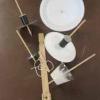
Tops
Source Institutions
In this activity, learners discover that some things only stand up while they are spinning.

Changing the Density of a Liquid: Adding Salt
Source Institutions
Learners see that a carrot slice sinks in fresh water and floats in saltwater.
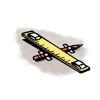
Comparing the Density of an Object to the Density of Water
Source Institutions
Learners compare the weight of equal volumes of wax, water, and clay. Learners discover that since the wax weighs less than an equal volume of water, it is less dense than water and will float.

Defining Density
Source Institutions
In this introductory demonstration and activity, learners are introduced to the concept of density as they explore a rock and a wooden block in water.
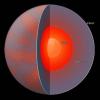
Heavyweight Champion: Jupiter
Source Institutions
In this activity, learners confront their perceptions of gravity in the solar system.
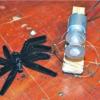
Creepy Crawlers
Source Institutions
Trick your family and friends with this creepy crawler that moves up and down. In this activity, learners construct a circuit and motor device that will move a homemade spider in a spooky way.
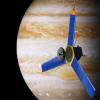
The Pull of the Planets
Source Institutions
In this activity, learners model the gravitational fields of planets on a flexible surface.

Dunking the Planets
Source Institutions
In this demonstration, learners compare the relative sizes and masses of scale models of the planets as represented by fruits and other foods.
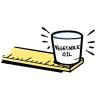
Comparing the Density of Different Liquids
Source Institutions
Learners carefully pour vegetable oil, water, and corn syrup in any order into a cup and discover that regardless of the order they are poured, the liquids arrange themselves in layers the same way.
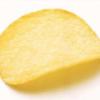
Ship the Chip
Source Institutions
In this activity, learners explore engineering package designs that meet the needs of safely shipping a product.
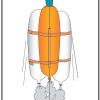
Heavy Lifting
Source Institutions
In this activity, learners work in NASA teams to build balloon-powered rockets using identical parts and compete to launch the greatest number of paper clips to "space" (the ceiling).
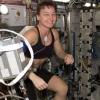
Space Stations: Beans in Space
Source Institutions
In this activity, learners perform 20 arm curls with cans that simulate the weight of beans on Earth versus the weights of the same number of beans on the Moon and in space.
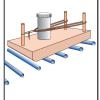
Newton Car
Source Institutions
In this activity, learners work in teams to investigate the relationship between mass, acceleration, and force as described in Newton's second law of motion.
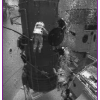
Weighty Questions
Source Institutions
In this activity about humans and space travel (page 1 of PDF), learners compare and contrast the behavior of a water-filled plastic bag, both outside and inside of a container of water.

Uplifting Force: Buoyancy & Density
Source Institutions
In this investigation, learners explore the force known as buoyancy by placing various objects into water and observing how they behave (for example, which sink more quickly, which float, how much wat
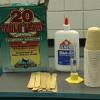
That's the Way the Ball Bounces: Level 1
Source Institutions
In this activity, learners prepare four polymer elastomers and then compare their physical properties, such as texture, color, size, and bounce height.
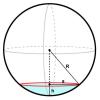
Mass, Area, Volume
Source Institutions
In this activity (page 18 of PDF), learners will measure the volume of impact craters created by projectiles of different masses.
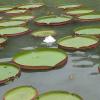
Sink It
Source Institutions
Learners classify a variety of objects by their characteristics. They then design an experiment to determine which objects float or sink in water and add this characteristic to their classification.

What Do You Know About Microbes?
Source Institutions
This is a series of quick activities/demos and pre-assessment tools that evaluate learners' current understanding of microbes and introduce them to basic information about microbes.
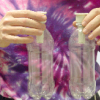
Does Air Weigh Anything?
Source Institutions
The demonstration/experiment provides quick proof that air has mass.
